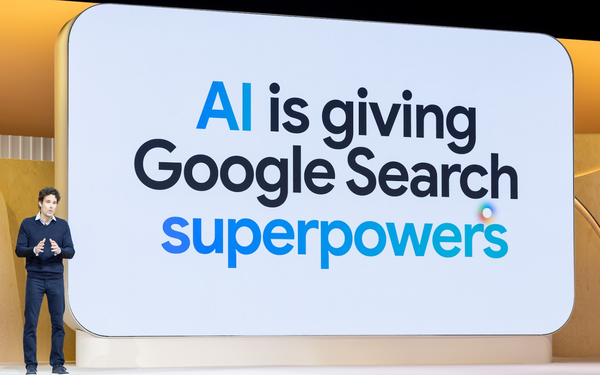
Google ads in AI Mode, an AI-powered search engine that launched earlier
this year, will outperform any other types of advertising online based on keywords in queries, intent, and location.
It's like stepping into a query and over information to get to the
intelligence and intent.
AI Mode can support more nuanced or complex questions than traditional search and AI Overviews, because of its ability to reason and learn. AI Mode can support more
nuanced or complex questions than traditional search and AI Overview, because of its ability to reason and learn.
AI Overviews generates quick summaries at the top of search results, but
AI Mode goes much deeper.
On Wednesday at its annual Google Marketing Live event on Wednesday, Google announced it will expand ads in AI Overviews to desktop, and bring ads to AI Mode.
The goal, of course, should be to create new opportunities for advertisers.
advertisement
advertisement
Test ads in AI Mode, when relevant, will serve up the ad below the responses. For example, someone may use AI
Mode to search “how to build a website for a small business with limited resources.”
The query might return a comprehensive response with a step–by-step guide and tops on how
to choose a product and connect with audiences. In some cases, a website builder might be a good next step, so a helpful ad may be shown. From there, the user can ask questions to explore possible
business ideas, what type of content they should develop, and even learn about their target audience.
Advertisers that are already using Performance Max, Shopping and Search campaigns with
broad match terms, including AI Max for Search campaigns, can have their ads appear in AI Overviews and AI Mode.
Ads in AI Overviews are placed in AI-generated summaries “when relevant
to both the query and the response provided,” and labeled as Sponsored. Google in the U.S. brought ads to AI Overviews on mobile in October 2024.
Perplexity launched ads last
November. Microsoft briefly piloted ads in its Copilot chatbot.
OpenAI said it may
adopt an ad-supported model to supplement subscriptions. You.com displays advertisements alongside its search results.